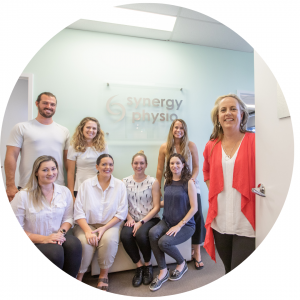Growing pains?
While it can be challenging for kids and parents, growing pains are common and can occur in up to 49% of children.
Two common leg conditions associated with growing are os-good schlatters disease and severs disease. Both of which involve an irritation of boney growth plates. Growth plates are found at the end of bones and are made of cartilage which is softer than bone and therefore can become sore and inflamed from too much load.
Lets explore these two conditions and what you can do about it!
Os-Good Schlatters Disease
- Symptoms: Is experienced as knee pain just below the knee cap on the tibial bone, where the knee cap and tendon attach. Sometimes a bony lump can develop. Pain is often worse with sporting activities or toward the end of an active day.
- Causes: Sometimes muscle imbalance within the muscles that attach to the patella can impact, causing tension on the patella tendon that inserts onto the tibia near the growth plate. Overload on the tendon insertions such as kicking sports and running during growth periods can also impact Os-Good Schlatters
- Tips: This condition normally has an excellent prognosis, and usually goes away with time and rest. Activity modification is recommended – reducing sports that involve running, jumping or deep knee-bending within pain tolerance. Ice packs can be helpful to reduce pain, and sometimes anti-inflammatories. Knee braces or taping can be also be helpful as well as a stretching regime. Your physio can complete a full assessment to determine the causes and the best treatment options
Severs Disease
- Symptoms: Heel pain in kids! Similar to os-good schlatters disease it is caused from repetitive microtrauma to the growth plate in the heel bone from the achilles tendon and plantar aponeurosis. Heel pain can feel worse during or after sports.
- Causes: There can be several factors contributing to the onset of symptoms including foot mechanics, footwear, calf muscle strength and flexibility and sporting levels.
- Tips: This condition often will settle with rest to allow the growth plate pain to settle. Activity modification is recommended – reducing sports that involve running, jumping within pain tolerance. Ice packs can be helpful to reduce pain and a stretching regime can be helpful – your physiotherapist can guide you through this. Massage and manual therapy may be helpful on muscles that are tight that could be contributing to increased pull on the growth plate, as well as orthotics or cushioning in shoes. Your physio can complete a full assessment to determine the causes and the best treatment options
Would you like to know more about what you can do to manage your heel pain or knee pain? You can read more here about plantar fasciitis!
 Our team here at Synergy Physio have expertise in the management of chronic conditions!
Our team here at Synergy Physio have expertise in the management of chronic conditions!
Together our team work in a thorough manner to provide a complete biomechanical assessment of your problem as well as a thorough step-by-step explanation and treatment plan to help you move forward to a healthier, happier you. Learn more about our physiotherapy team here!
Contact us on 07 54483369 or simply book your appointment online

Leave A Comment